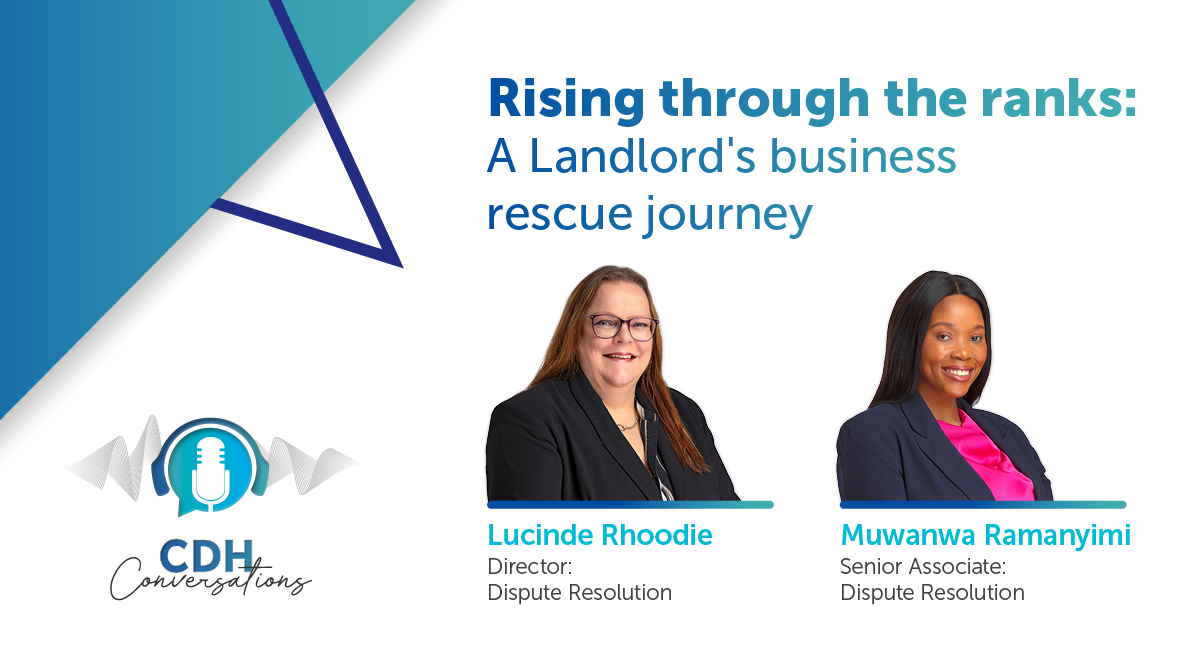Kicking for touch - postponement of the budget speech
The Legal framework for the budget process
The process for tabling the annual budget is governed by the Constitution of the Republic of South Africa (Constitution), the Public Finance Management Act (PFMA), and various parliamentary rules.
A key step in this process typically involves budget preparation, where National Treasury, in consultation with government departments, prepares a draft budget that aligns with fiscal policy objectives.
Following this, the Minister then delivers the Budget Speech, typically in February, in order to introduce the proposed budget. This outlines proposed government spending, revenue collection, and tax adjustments.
Finally, the proposed budget tabled by the Minister faces parliamentary scrutiny, and ultimately leads to the passing of relevant bills, such the Division of Revenue Bill, the Appropriation Bill, Rates and Monetary Amounts Amendment Bill and the Taxation Laws Amendment Bill.
Legal deadline for budget introduction and approval
The Constitution and the PFMA delineates certain parameters regarding the introduction and approval of the national budget.
While the Constitution does not explicitly prescribe a fixed deadline for the introduction of the budget, it does stipulate in section 213 that money may only be withdrawn from the National Revenue Fund in accordance with an Act of Parliament.
Section 27 of the PFMA then dictates that the national budget must be proposed before the start of the financial year, unless special circumstances exist, in which case a delay may be permitted. Additionally, the PFMA provides that the budget must be approved in time to ensure uninterrupted government operations.
If the budget is delayed beyond the start of the financial year, interim funding measures under section 29 of the PFMA permit the government to spend a percentage of the previous year’s appropriations until a new budget is passed.
Consequences of a delay
The 2025/6 budget process appears to have gotten stuck at the first step in the budget process – preparation in consultation with other government departments. By all accounts, the executive in the newly established Government of National Unity were unable to reach agreement on the budget policy to be adopted.
South Africa's fiscal squeeze is no secret - government expenditure outpaces revenue collection, and this leads to increased government debt. It appears that the proposed solution that led to the disagreement between Ministers was an increase in the VAT rate by 2%. Since VAT is a regressive tax, the proposal is politically unpalatable, particularly in a country such as South Africa, and appears to have led to a break down in the budget process.
However, a delay in introducing a budget could now have a knock-on effect in terms of the entire budget process. As a result, there may be a delay to final legislation being passed. In the case of a significant delay, it could potentially impact government funding and allocations for important functions and services performed by the State.
It also creates tax uncertainty.
Conclusion
At this stage it is uncertain as to how the disagreements within the executive will be resolved in relation to the proposed VAT increase, while the fact that government has a need for increased revenue remains.
It appears that a commitment has been made to resolve the disagreements by 12 March 2025, but where the compromise will be found remains to be seen. If VAT is not increased, other taxes could be increased, or new taxes could be introduced. We will continue to monitor developments and provide further updates.
The information and material published on this website is provided for general purposes only and does not constitute legal advice. We make every effort to ensure that the content is updated regularly and to offer the most current and accurate information. Please consult one of our lawyers on any specific legal problem or matter. We accept no responsibility for any loss or damage, whether direct or consequential, which may arise from reliance on the information contained in these pages. Please refer to our full terms and conditions. Copyright © 2026 Cliffe Dekker Hofmeyr. All rights reserved. For permission to reproduce an article or publication, please contact us cliffedekkerhofmeyr@cdhlegal.com.
Subscribe
We support our clients’ strategic and operational needs by offering innovative, integrated and high quality thought leadership. To stay up to date on the latest legal developments that may potentially impact your business, subscribe to our alerts, seminar and webinar invitations.
Subscribe




